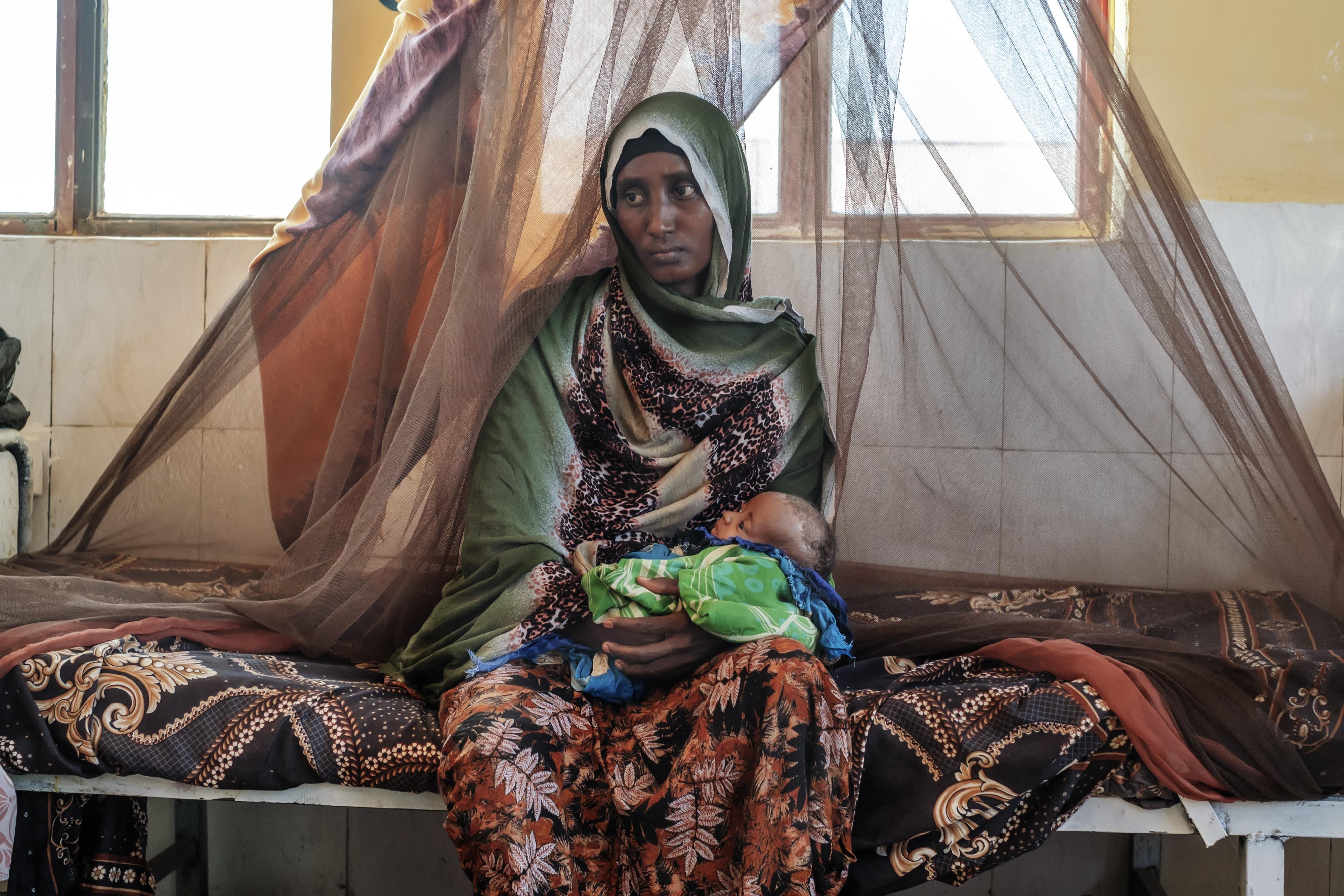 A woman holds a malnourished child at the nutrition unit of the Gode General Hospital, in the city of Gode, Ethiopia, on January 11, 2023. The last five rainy seasons since the end of 2020 have failed, triggering the worst drought in four decades in Ethiopia, Somalia and Kenya. (PHOTO / AFP)
A woman holds a malnourished child at the nutrition unit of the Gode General Hospital, in the city of Gode, Ethiopia, on January 11, 2023. The last five rainy seasons since the end of 2020 have failed, triggering the worst drought in four decades in Ethiopia, Somalia and Kenya. (PHOTO / AFP)
WASHINGTON - There are 745 million more moderately to severely hungry people in the world today than in 2015, and the world is far off track in its efforts to meet an ambitious United Nations goal to end hunger by 2030, according to a UN report.
At the halfway point to the deadline set for achieving the 2030 Agenda for Sustainable Development, the world is seeing little to no improvement in most of the food and agriculture-related goals, said the report by the Food and Agriculture Organization, released ahead of a UN sustainable development summit next week in New York.
Undernourishment is worst in the global south, with hunger rising most in Sub-Saharan Africa
"The lingering effects of the COVID-19 pandemic, along with other crises such as climate change and armed conflicts, are having widespread impacts," the report reads. "Progress made in the past two decades has stagnated, and in some cases even reversed."
ALSO READ: Multiple crises push global hunger figure higher, UN says
Global food insecurity spiked sharply in 2020 as the pandemic disrupted food markets and drove up unemployment, but hunger has not returned to pre-pandemic levels. About 29.6 percent of the global population - 2.4 billion people - was moderately or severely food insecure in 2022, up from 1.75 billion in 2015, the report said.
Undernourishment is worst in the global south, with hunger rising most in Sub-Saharan Africa.
The world has also seen no improvement towards a goal to halve food waste, which has remained at about 13 percent since 2016. Countries should craft policy to reduce food loss, the report said.
Reuters reported last November that the lack of global progress on food waste is due to low public investment and clear policy, and wasteful consumer habits.
READ MORE: Food bank charity: 1 in 7 Britons faced hunger in 2022
The world is also far from achieving goals to protect fish stocks, conserve forests, and reverse land degradation. Some progress has been made on water use efficiency and curbing illegal fishing.


